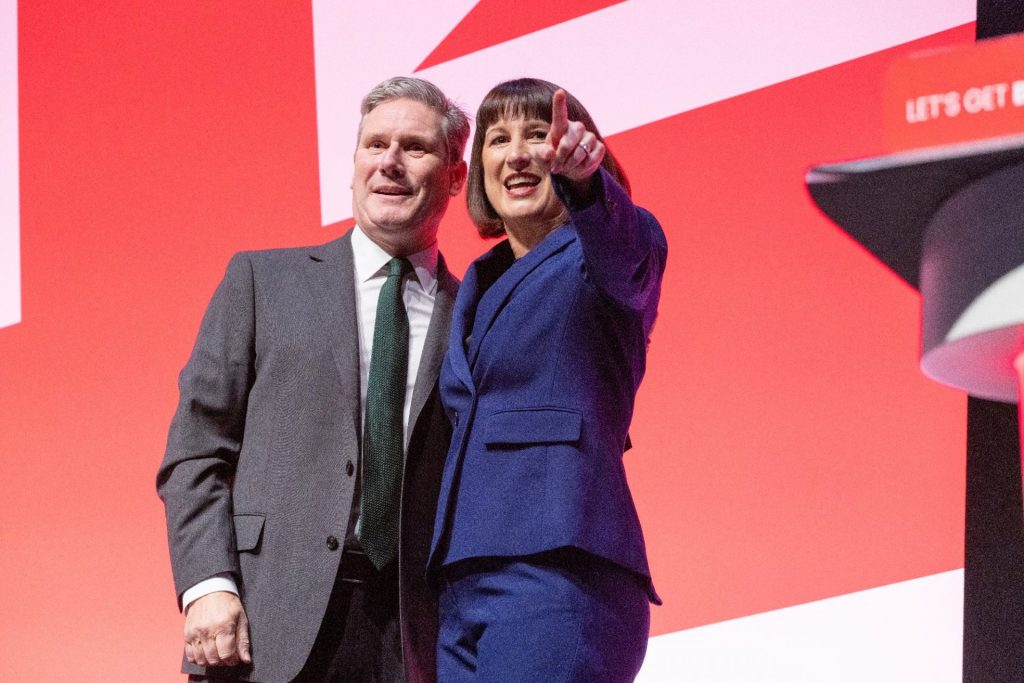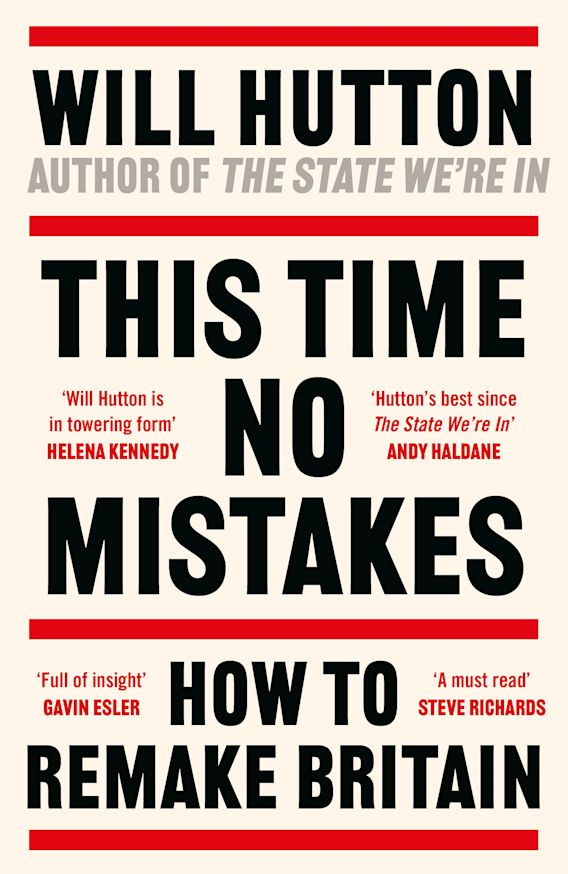The Conservative Party is now an association of cults – five right wing “families” and a bloc of mainstream “One Nation” Tories – none of whom command a majority in the party, let alone the country. This presents non-Tory Britain with an all-too-rare opportunity.
But Tory disarray may not last. The forces of the rational centre right may be in headlong retreat, but there is every prospect that this now very right wing party will next coalesce around an extreme programme of rabid hostility to immigration and aggressive tax cuts.
Tax cuts are still seen as a universal panacea, notwithstanding the fiasco of the Truss government. Violent opposition to all things “woke”, with no trace of liberalism or pro-Europeanism, will complete the political stance.
Withdrawal from the European Convention on Human Rights is the next anti-European frontier – there is always some sinister European menace on the horizon – to be replaced by a proposed all-British Human Rights Act.
This will doubtless allow any number of core rights to be overridden at the discretion of a sovereign parliament – confidently expected to be in right wing Tory hands almost permanently – and removing their independent legal entrenchment by almost abolishing appeal to the courts over immigration and asylum rulings.
Even discussion about climate change and the environment, once an area of cross-party consensus, has become toxic, now seen as a dividing line with the opposition parties.
More inequality, social division and environmental damage may follow – but no matter. They may pay electoral dividends.
Thatcher and her vastly overegged achievements remain the shibboleth to which any aspirant Conservative politician must genuflect. The playmakers on the right have translated Thatcherism into outright populism and libertarianism, backed by a powerful media that is many times more “feral” than when Tony Blair dubbed it such on leaving office.
The readiness to exaggerate to the point of falsehood, a feature of Brexit, has now become a regular trope of Conservative discourse.
Such language, which was once condemned even by Conservatives – as when Enoch Powell spoke of “rivers of blood” if immigration continued unabated and was dismissed from the shadow cabinet – now routinely crosses poisonous boundaries with no reproach; a “hurricane” of immigration threatens, a cosseted “liberal elite” menaces “the people”, “lefty lawyers” traduce the intent of elected lawmakers.
This dark dimension to the Conservative hard right translates directly into policy; another term of office will lead to further attacks on civil liberties and the rule of law, the radical undermining of public-service broadcasting and even more intense screening of appointments and surveillance of anybody it considers threatening to its project – journalists, academics, publishers, NGOs, lawyers, public-service broadcasters, trade unionists, independent civil servants.
Orwell directed much of his concern about the distortion of language to serve authoritarian ends to the left. Today, he would surely be equally concerned about the manipulation of language by the right.
Perhaps the only unexpected benefit of Brexit is that it has been an obvious failure; Tory populists in its wake will struggle to find majority electoral support in rallying to protect it.
Thus the temptation to alight on immigration as a surrogate cause. Yet the country has seen where populism leads, and it has little appetite for more, at least so far.
A Tory populist revival can be kept at bay until the party is reclaimed by those representing its better angels – as long as a progressive government actually delivers.
To remedy all of this cannot be done in one parliament. It has taken 14 years to reach this sorry pass, building on foundations laid in the Thatcher years, so turning this around is a generational task – although improvements should be obvious by the end of the first parliament of a new reforming administration, if it is serious about change.
The money can be found. Fiscal policy needs to be remodelled with investment as its centrepiece. The national investment balance sheet needs to be measured and the steady improvement in the net worth of the public sector as investment rises recorded and monitored.

Financial markets actually approve of investment and higher growth rates; they will buy British government debt to finance it.
New revenue sources, particularly derived from taxing environmental harms and wealth, can be created. The overall tax take will first have to rise to finance vital additional public investment, rescue public services in crisis and so catalyse more growth.
But as growth rises, so the country will enter a virtuous circle of growth begetting the tax revenues for another cycle of public improvement and higher private investment. Britain is more than rich enough to fund its own renaissance, and as it draws away from today’s abyss there will be scope to organise the tax system more fairly, even to begin to lower the tax take.
All this will need strategic direction, striking the right balance between central and local government, implementing step by step all of the reforms to the constitution, state apparatus, regulation and the media outlined in the previous chapter.
The degraded public square can be made saner and more civil; Scotland can be persuaded that with more control over its destiny it should make common cause with England, Wales and Northern Ireland in a rejuvenated and more federal country.
Britain used to have a reputation for good government, rather than for presiding over an endless series of blunders and serial incompetence. That reputation can and must be regained.
The UK cannot get this right by itself. We are a European country, and we need to recover the trade and investment flows – along with the commitment to high and common European standards – that accompanied our EU membership.
And the global environment is very different to 2016, when the country was hoodwinked into leaving. Britain must be part of the emergent European defence and security architecture based on EU collaboration – whether organising aid to Ukraine or the development of European defence, military and weapons industries.
Every significant 21st-century challenge – artificial intelligence, climate change, international migration, managing pandemics, energy security – requires collaboration across borders.
Our best shot at confronting and managing any upsurge in international migration, for example, is to work with other states on our own continent. To have excluded ourselves from the councils in Europe where the responses will be decided was an act of vandalism. We need, as a character in the great musical Hamilton sings, to be in “the room where it happens”.
The British were deceived by politicians who appealed to the electorate’s demons rather than its better angels. Reassociating ourselves with the EU is vital – it cannot be dodged, like the refusal for 30 years to revalue residential property.
The approach may be touching stones to cross the river, as the old Chinese aphorism puts it, but the steps must be touched and the river crossed.
As I write these words I am keenly aware of the objections – that Europe is turning rightwards and inwards and that the pressures encouraging right wing movements across the west, from immigration to stagnating real wages, are intensifying.
Donald Trump may win the Republican nomination for the US presidency and then even win the presidency. To imagine a different order is to live in dreamland, the cynical will say.
And yet. To hate, to exclude, to divide, to set men and women against each other on the basis of their colour or ethnicity, to pull up the drawbridge, to endorse closure – none of this leads to the good life. They cannot be purposes that enhance our humanity.
I warm to Attlee’s answer when asked to describe in his first major television interview in 1954 what he thought the Labour Party had to offer – how his brand of socialism should be understood. “You know there’s nothing better than the motto we have in this Borough, by our greatest citizen, William Morris – Fellowship is Life.”
Attlee continued, “We believe in the kind of society where we’ve fellowship for all. You can’t get that in a totalitarian society, you can’t get while there’s grave inequalities of wealth. That is the hope of the world”.
Today, we are diminished by denying our urge to fellowship – the effort to put ourselves in the skin of our fellow human beings, try to see the world as they see it and stand shoulder to shoulder in redressing injustice and offering opportunity.
New Liberal thinker Thomas Green was right. Men and women, he declared, can only be rounded, moral human beings with the capacity for self-realisation – the fundamental object of existence – if they recognise that they share a common purpose of human betterment with every other human being, which each individual has an obligation to help both themselves and others fulfil.
Attlee’s ethic of socialism grounded in fellowship and Green’s new liberalism are not antagonistic visions; they are overlapping and complementary.
Get it right and Britain could be the most dynamic economy in Europe, with a multicultural society and a vigorous democracy. Britain could become a model for the rest of Europe to emulate.
Internationally, it could justify its membership of the UN Security Council and its privileged position in the IMF and World Bank which, if matters continue to slide, it will be under pressure to surrender.
It could become a force for good, living its values, in a world that is more dangerous and menacing than at any time since 1945.
Why not try? Britain retains great assets on which to build, and above all a great tradition of tolerance and fairness – fundamental building blocks of the 21st-century order.
But first, there must be a progressive government. The first-past-the-post electoral system, for over 100 years the curse of British democracy, forces the issue – both voters and the opposition parties have to recognise that for this next election and the one that follows the normal rules cannot apply. The stakes are too high.
The precondition for change is that voters exercise their right to vote, especially the under 50s whose participation tends to be lower than their elders – but whose lives will be most directly affected by more economic and social failure.
Tactical voting has been a feature of general elections and in particular by-elections for decades, but this time every vote must count. Electors must vote tactically for their second-preference progressive candidate if they are the one most likely to win.
The political parties cannot pretend that this is not the calculation of most non-Tory voters, and go through the pantomime of competing against each other, dividing the vote.
At the very least, there must be an informal understanding not to compete in seats which are obviously winnable by the other party.
Then the party manifestos must be drawn up so that there is a huge overlap in priorities, including the emphasis on environmental imperatives, not only because of their intrinsic importance but because many Green voters also need to be persuaded to vote tactically.
They, alongside Labour and LibDem voters, need to know that the sacrifice they are making in not voting for their first- choice candidate is not so great – a lot of what they want will be in every opposition party manifesto.
There is a case for going further still. The Liberal Party took the calculated risk in the last decades of the 19th century of allowing trade unionists to stand in heavily industrialised Liberal constituencies in order to represent the “labour” interest; LibLab MPs who would support the Liberals in government.
The thinking in 1903 was that the non-Tory vote in a crucial general election that might end two almost-unbroken decades of Conservative rule must not be divided – hence the Gladstone-MacDonald pact.
Two dozen Labour MPs were elected as a direct result, and proved an important part of the coalition to achieve badly needed reforms.
What was done in 1906 can be done in 2024, and again in subsequent elections. The parties could and should stand aside for each other in a critical mass of seats until the voting system is reformed. Britain cannot afford more of the same any more today than it could 120 years ago.
Such an arrangement would be a bold political statement in its own right. The dominant political narrative should be that the great task of national renewal – our New Deal moment – goes beyond party, that the philosophical differences between the opposition parties are too small to argue about and that there are times in national life when politicians and people must come together for the common good.
It is a framework that allows the political debate to go up a gear, opening the space to talk about the seriousness of our situation. It also would give the better Conservatives a chance to make a parallel case in their own party.
What the next government must do is obvious, and it needs to have as big and as wide a mandate as possible – helped by supportive MPs from other sympathetic parties. We can rebuild an attractive country with an uniquely dynamic, purpose-driven capitalism grounded in an economic philosophy that recognises the interdependence of the private and public spheres.
We can all lead lives we have reason to value underwritten by a vibrant social contract. We can revive our democracy. We can stand by the values – fellowship, tolerance, fairness, kindness, belonging – we hold dear while at the same time respecting the urge for individual self-betterment, ambition and action.
The “We Society” must offer both a floor and a ladder. We can hold our political union together. We can remake our relationship with the EU. The life of a nation is no more preordained than that of an individual; we have choices and agency. This time, no mistakes.




